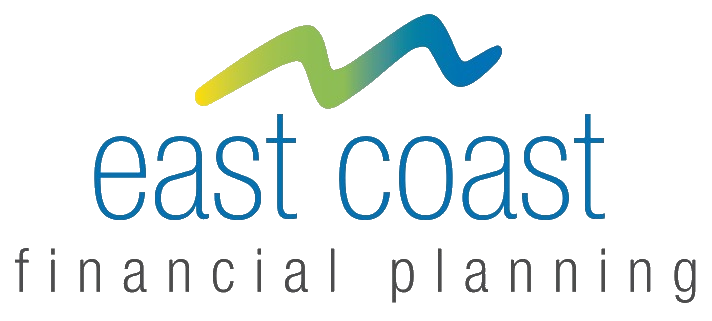The latest rise in the Age Pension rate still falls short of what many people may need to have a modest lifestyle in retirement.
Around 2.58 million Australians received a 1.78% government Age Pension payment boost on March 20 as part of Centrelink’s twice-yearly indexation review.
They included the 1.76 million people who receive a full Age Pension, according to Department of Social Services December 2023 quarterly data, and a further 806,670 who qualify for part pension payments based on them having passed either Centrelink’s “income” or “assets” pension means tests, or both.
The raise means the full Age Pension rate for singles has risen by $19.60 to $1,116.30 per fortnight, and for couples by $14.70 to $841.40 per fortnight each. These amounts equate to $29,023.80 and $43,752.80 per year, respectively.
Yet, with cost-of-living pressures continuing to mount, receiving only the full Age Pension without the benefit of other sources of regular income means that even having a modest lifestyle in retirement may be out of reach for many Australians.

Retirement costs have spiked
December 2023 quarterly data released by the Association of Superannuation Funds of Australia (ASFA) shows that rises in everyday living expenses had pushed up the amounts needed to fund a good standard of living in retirement to record levels.
Falling inflation levels should help to reduce some of these living costs, but certainly not all of them.
Weekly budgets for various households and living standards for those aged around 65 (December quarter 2023, national)
|
Household |
Single Modest |
Couple Modest |
Single Comfortable |
Couple Comfortable |
|---|---|---|---|---|
|
Housing – ongoing only |
$118.48 |
$133.61 |
$139.37 |
$145.49 |
|
Energy |
$40.68 |
$54.64 |
$51.54 |
$63.92 |
|
Food |
$109.64 |
$203.27 |
$141.76 |
$246.38 |
|
Clothing |
$21.16 |
$40.21 |
$28.26 |
$52.63 |
|
Household goods and services |
$39.40 |
$46.25 |
$85.24 |
$105.69 |
|
Health |
$55.53 |
$107.50 |
$112.94 |
$211.63 |
|
Transport |
$109.57 |
$116.71 |
$179.02 |
$193.91 |
|
Leisure |
$113.03 |
$117.47 |
$221.33 |
$332.71 |
|
Communications |
$18.29 |
$20.61 |
$22.88 |
$29.78 |
|
Total per week |
$625.78 |
$900.27 |
$982.34 |
$1,382.15 |
|
Total per year |
$32,666 |
$46,994 |
$51,278 |
$72,148 |
Source: ASFA
The annual cost for a single person aged between 65 and 84 to have a modest lifestyle in retirement was $32,665.66. This is about 12.5% above the new full Age Pension rate.
ASFA defines a modest retirement lifestyle income as one that enables retirees to afford basic health insurance and infrequent exercise, leisure and social activities with family and friends.
For couples, ASFA found that $46,994.28 per year was needed to have a modest retirement. This level is only about 7.4% above the new full Age Pension rate for couples.
Under the Age Pension income test, singles can also earn up to $204 per fortnight ($5,304 per year) and couples $360 per fortnight ($9,360 per year) before their fortnightly full Age Pension payments are reduced based on every dollar earned above these amounts.
But to have a comfortable retirement, which ASFA defines as being able to maintain a good standard of living without major spending restrictions, the association has calculated that single retirees will need an annual income of $51,278.30 and couples $72,148.19.
These levels are significantly above the full Age Pension rates and are much more likely to be achieved by individuals and couples who are able to generate higher account-based pension income from their accumulated retirement savings balances and other income-producing assets.
In doing so, they are more likely to fall outside of both the income test and assets test boundaries to actually qualify for the Age Pension (at least during the early phase of their retirement until their pension drawdowns over time bring them within Centrelink’s limits for receiving a full or part Age Pension).
The benefits of good retirement planning
The 2023 thematic review of the retirement income covenant by the Australian Prudential Regulation Authority (APRA) and the Australian Securities & Investments Commission (ASIC) into how super trustees are helping members enhance retirement outcomes concluded that more needs to be done to improve superannuation member outcomes in retirement.
Longevity risk – the risk of outliving savings – is a key concern for retirees in deciding how to draw down their superannuation during retirement.
“Most people rely on the Government for protection against longevity risk through the Age Pension, which provides a safety net for retirees who outlive their savings,” according to the Intergenerational Report 2023.
“Well-designed superannuation retirement products can assist retirees to make decisions to help smooth consumption over retirement – aligning income needs with expenditure needs – and draw down on their balances efficiently. This would also enable decision making early in retirement.”
Preparing well ahead for life in retirement is key. A good starting point for many Australians should be to seek out professional financial advice, especially in the context of retirement spending and understanding how the Age Pension may play an important role.
This article has been reprinted with the permission of Vanguard Investments Australia Ltd. Copyright Smart Investing
GENERAL ADVICE WARNING
Vanguard Investments Australia Ltd (ABN 72 072 881 086 / AFS Licence 227263) (VIA) is the product issuer and operator of Vanguard Personal Investor. Vanguard Super Pty Ltd (ABN 73 643 614 386 / AFS Licence 526270) (the Trustee) is the trustee and product issuer of Vanguard Super (ABN 27 923 449 966).
The Trustee has contracted with VIA to provide some services for Vanguard Super. Any general advice is provided by VIA. The Trustee and VIA are both wholly owned subsidiaries of The Vanguard Group, Inc (collectively, “Vanguard”).
We have not taken your or your clients’ objectives, financial situation or needs into account when preparing our website content so it may not be applicable to the particular situation you are considering. You should consider your objectives, financial situation or needs, and the disclosure documents for the product before making any investment decision. Before you make any financial decision regarding the product, you should seek professional advice from a suitably qualified adviser. A copy of the Target Market Determinations (TMD) for Vanguard’s financial products can be obtained on our website free of charge, which includes a description of who the financial product is appropriate for. You should refer to the TMD of the product before making any investment decisions. You can access our Investor Directed Portfolio Service (IDPS) Guide, Product Disclosure Statements (PDS), Prospectus and TMD at vanguard.com.au and Vanguard Super SaveSmart and TMD at vanguard.com.au/super or by calling 1300 655 101. Past performance information is given for illustrative purposes only and should not be relied upon as, and is not, an indication of future performance. This website was prepared in good faith and we accept no liability for any errors or omissions.
Important Legal Notice – Offer not to persons outside Australia
The PDS, IDPS Guide or Prospectus does not constitute an offer or invitation in any jurisdiction other than in Australia. Applications from outside Australia will not be accepted. For the avoidance of doubt, these products are not intended to be sold to US Persons as defined under Regulation S of the US federal securities laws.
© 2024 Vanguard Investments Australia Ltd. All rights reserved.




